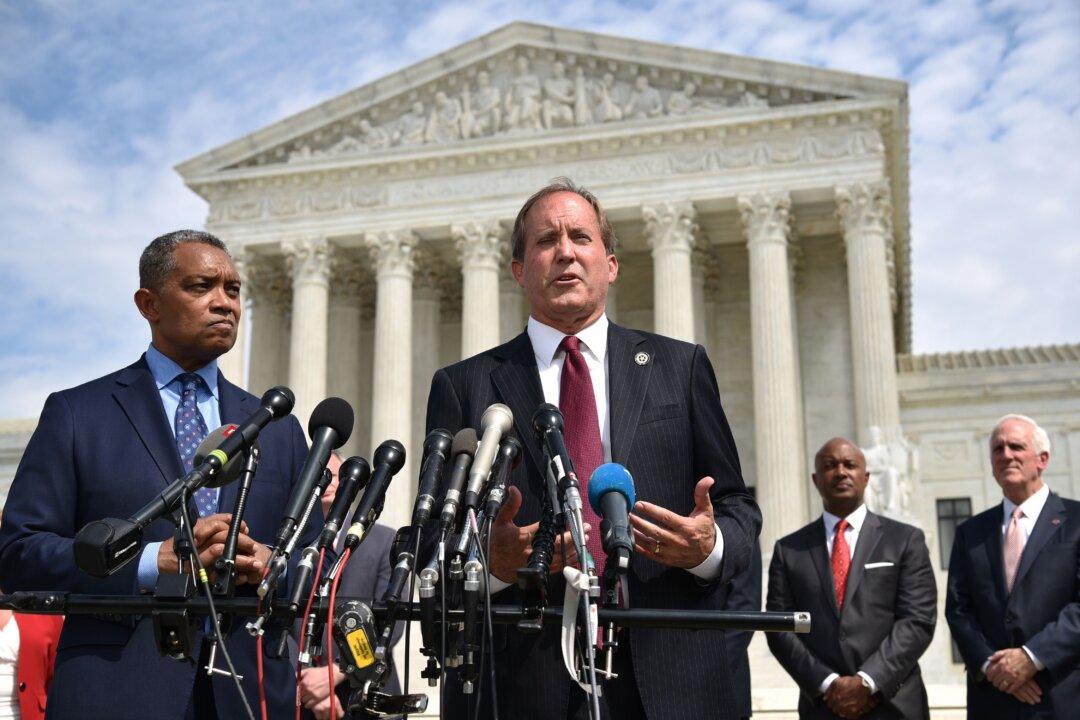Texas Attorney General Ken Paxton has launched a raft of lawsuits against Austin, San Marcos, Killeen, Elgin, and Denton over their decriminalization of marijuana, also known as Cannabis.
In a Jan. 31 press release, Mr. Paxton said he has taken legal action because the cities in question have adopted “amnesty and non-prosecution policies that violate Texas laws concerning marijuana possession and distribution.”





